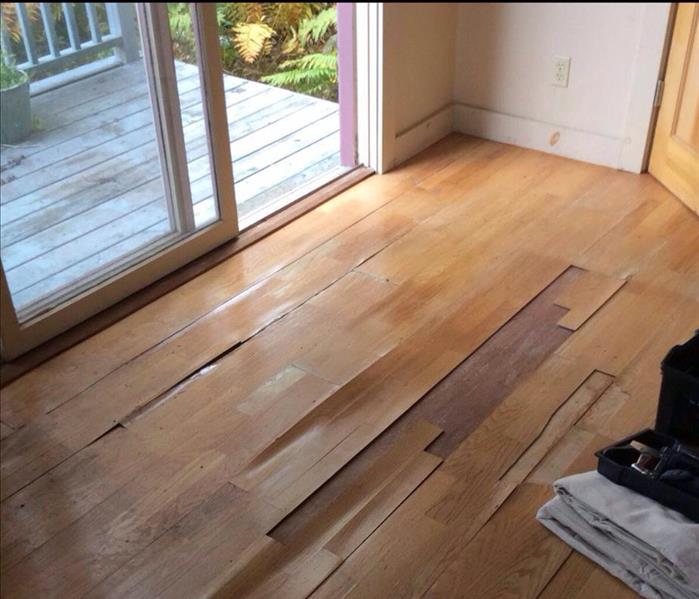Understanding the Dangers of Electrical Hazards During Water Damage
3/12/2025 (Permalink)
 Water damage can be an overwhelming situation, whether caused by a flood, plumbing issue, or appliance failure.
Water damage can be an overwhelming situation, whether caused by a flood, plumbing issue, or appliance failure.
Water damage can be an overwhelming situation, whether caused by a flood, plumbing issue, or appliance failure. While dealing with water damage, one of the most critical concerns is the risk of electrical hazards. Water and electricity are a dangerous combination, and understanding the risks can help prevent severe property damage.
In this blog, we’ll explore the dangers of electrical hazards during water damage and why immediate professional intervention is necessary.
What Are the Dangers of Electrical Hazards During Water Damage?
Water is a powerful conductor of electricity, and when it comes into contact with electrical systems, the risk of severe damage significantly increases. Here are some of the primary dangers:
1. Risk of Short Circuits and Electrical Fires
When water enters electrical outlets, wiring, or appliances, it can cause short circuits. This can lead to electrical fires, which can spread quickly and result in extensive property damage.
2. Malfunctioning Electrical Systems
Water-damaged electrical panels, outlets, and wiring can cause unpredictable power surges and failures. This can damage appliances and electronic devices, leading to costly repairs or replacements.
3. Structural Damage to Electrical Components
Prolonged water exposure can lead to corrosion and deterioration of electrical wiring, panels, and outlets. This damage may not be immediately visible but can lead to long-term electrical failures.
4. Unexpected Power Surges
Even after water has been removed, residual moisture within electrical components can cause power surges when the system is re-energized. This can lead to damage to sensitive electronics and appliances.
Steps to Take When Facing Electrical Hazards from Water Damage
If you experience water damage, taking immediate action is crucial to prevent further electrical risks. Follow these essential safety measures:
- Turn Off Power: If it is safe to do so, turn off the electricity at the main breaker before entering a water-damaged area.
- Avoid Contact with Water: Do not touch water that may have come into contact with electrical components or outlets.
- Do Not Use Electrical Appliances: Avoid plugging in or using any electrical appliances that may have been affected by water damage.
- Contact Professionals Immediately: Reach out to experienced water damage restoration professionals, like SERVPRO®, to assess and mitigate electrical hazards safely.
- Schedule an Electrical Inspection: Before restoring power, ensure that a licensed electrician inspects your electrical system for safety.
Frequently Asked Questions (FAQs)
Can I turn the power back on after the water is removed?
No, even after water removal, electrical components may still be compromised. A professional inspection is necessary to ensure safe operation.
What should I do if I see sparks or hear buzzing sounds?
If you notice sparks, buzzing sounds, or flickering lights, immediately leave the area and contact emergency services or a qualified electrician.
Will my electrical outlets and wiring need to be replaced after water damage?
It depends on the extent of the damage. A professional electrician will determine whether repairs or full replacements are necessary.
How can SERVPRO help with electrical hazards during water damage restoration?
SERVPRO works closely with licensed electricians to assess and address electrical hazards while restoring water-damaged properties. Our team ensures safe and efficient mitigation processes to prevent further damage.
Understanding the dangers of electrical hazards during water damage is essential for protecting your property. Water and electricity pose serious risks, but by taking the right precautions and seeking professional assistance, you can minimize damage and restore your property safely.
If you’re dealing with water damage and suspect electrical risks, don’t wait—contact SERVPRO today for expert restoration services!

 24/7 Emergency Service
24/7 Emergency Service